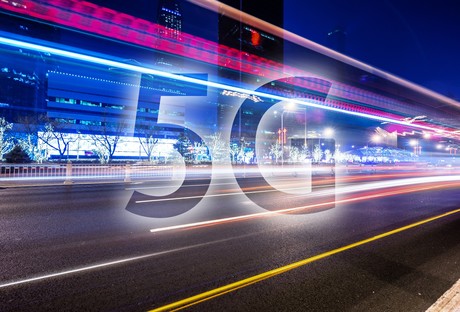5G to reach 40% of the world by 2024: Ericsson

It is forecast that 5G will reach over 40% of the world’s population by the end of 2024.
In addition, there will be 1.5 billion subscriptions for enhanced mobile broadband, making 5G the fastest generation of cellular technology to be rolled out on a global scale — according to the latest edition of the Ericsson Mobility Report.
Key drivers for 5G deployment include increased network capacity, lower cost per gigabyte and new use case requirements.
North America and North East Asia are expected to lead the 5G uptake. In North America, 5G subscriptions are forecast to account for 55% of mobile subscriptions by the end of 2024. In North East Asia, the corresponding forecast figure is more than 43%.
In Western Europe, 5G is forecast to account for some 30% of mobile subscriptions in the region by end of 2024.
The uptake of NB-IoT and Cat-M1 technologies is driving growth in the number of cellular IoT connections worldwide. Of the 4.1 billion cellular IoT connections forecast for 2024, North East Asia is expected to account for 2.7 billion — a figure reflecting both the ambition and size of the cellular IoT market in this region.
Diverse and evolving requirements across a wide range of use cases are prompting service providers to deploy both NB-IoT and Cat-M1 in their markets.
Mobile data traffic in Q3 2018 grew close to 79% year-on-year, which is the highest rate since 2013. Increased data traffic per smartphone in North East Asia — mainly in China — has pushed the global figure notably higher. With a traffic growth per smartphone of around 140% between end 2017 and end 2018, the region has the second-highest data traffic per smartphone at 7.3 gigabytes per month. This is comparable to streaming HD video for around 10 hours per month.
North America still has the highest data traffic per smartphone, set to reach 8.6 gigabytes per month by the end of this year — which can be compared to streaming HD video for over 12 hours monthly.
From 2018–2024, total mobile data traffic is expected to increase by a factor of five, with 5G networks projected to carry 25% of mobile traffic by the end of the period.
“As 5G now hits the market, its coverage build-out and uptake in subscriptions are projected to be faster than for previous generations. At the same time, cellular IoT continues to grow strongly. What we are seeing is the start of fundamental changes that will impact not just the consumer market but many industries,” said Fredrik Jejdling, Executive Vice President and Head of Business Area Networks.
The report also features articles on fixed wireless access and how to make it a reality, streaming video from megabits to gigabytes, and developing the smart wireless manufacturing market.
Read the full Ericsson Mobility Report.
Please follow us and share on Twitter and Facebook. You can also subscribe for FREE to our weekly newsletter and bimonthly magazine.
Nokia selected to deploy 4G and 5G equipment in India
Nokia has been awarded a multiyear extension deal by Bharti Airtel to deploy 4G and 5G equipment...
Nokia wins deal to deploy 5G in Vietnam
The ambitious project will cover 22 provinces across the country and support Viettel Group's...
Nokia to deploy 5G in Argentina, expand coverage in Brazil
Nokia has signed a comprehensive deal to deploy 5G infrastructure across Argentina, as well as a...



